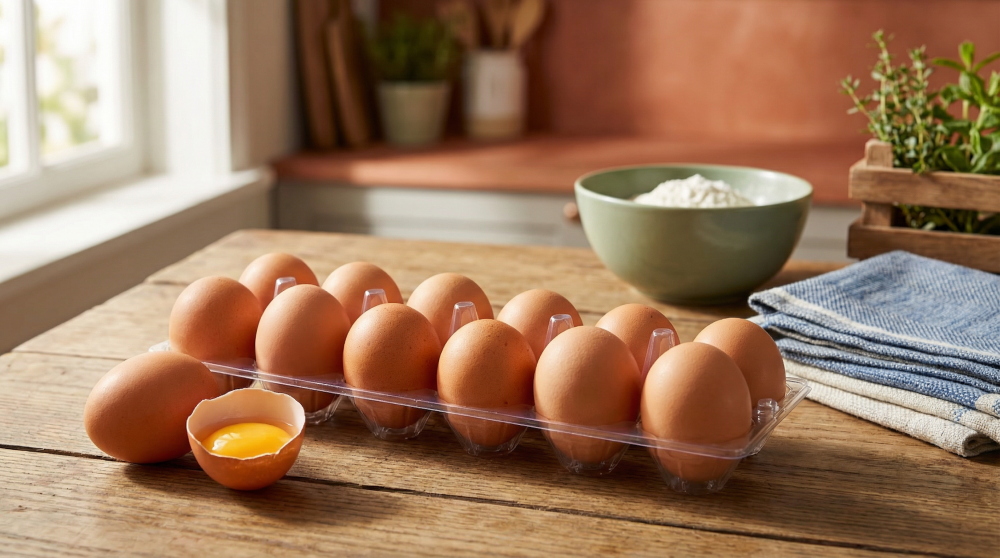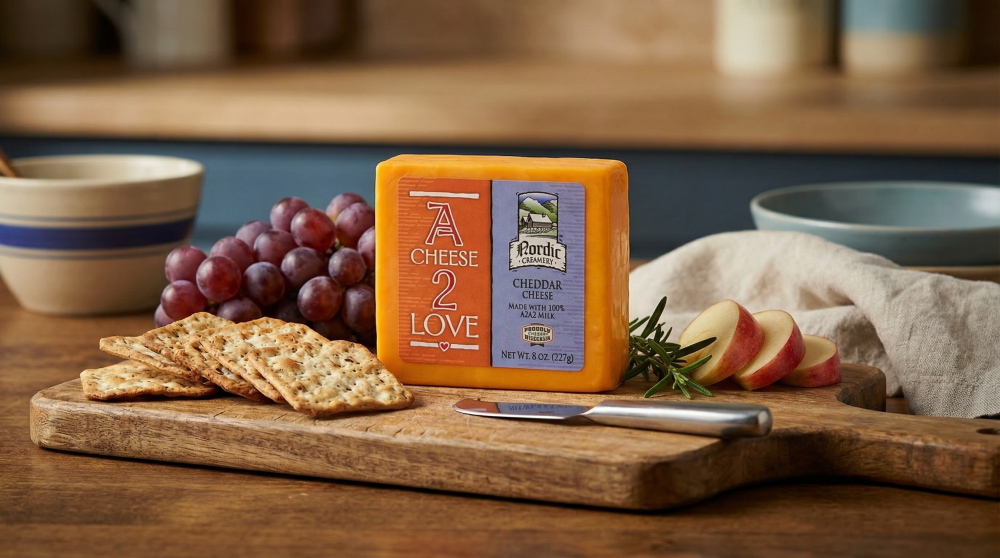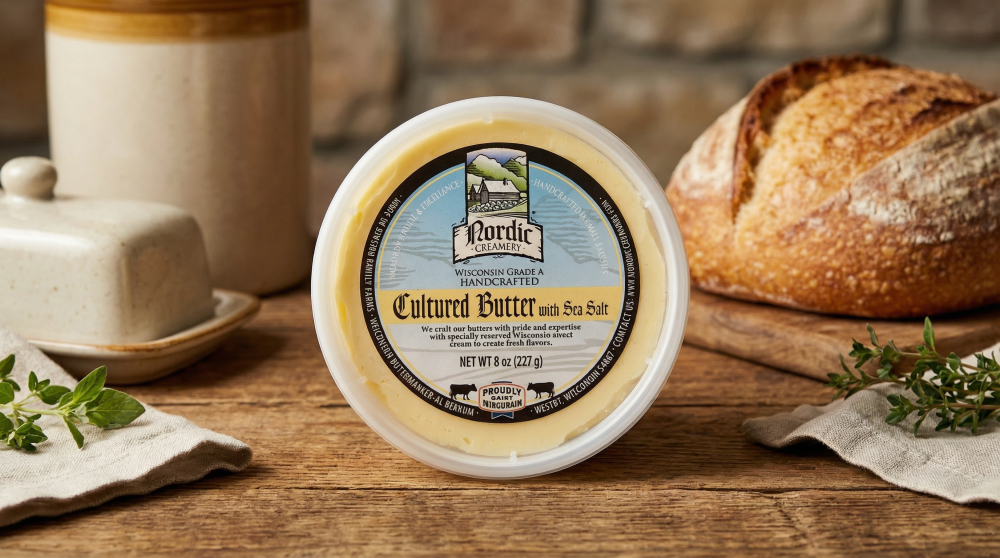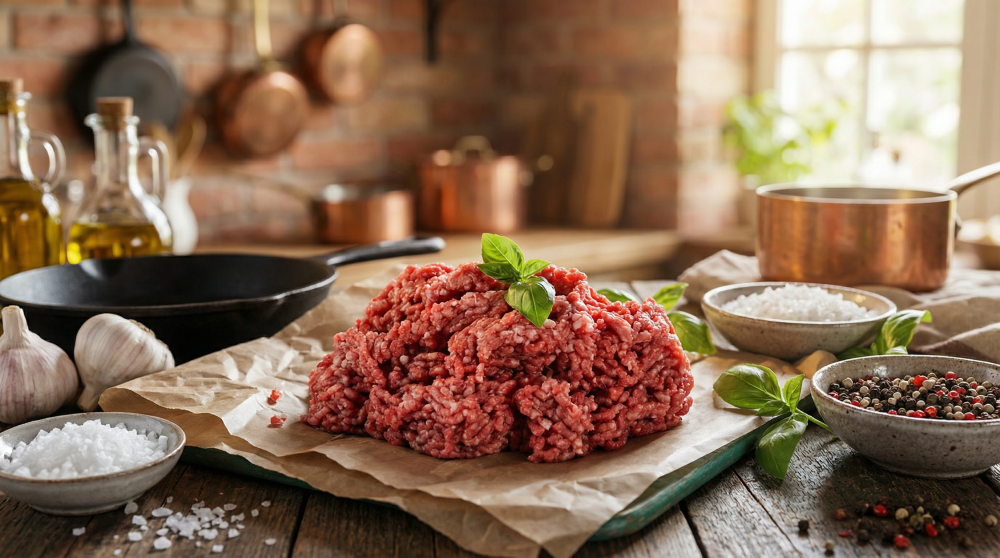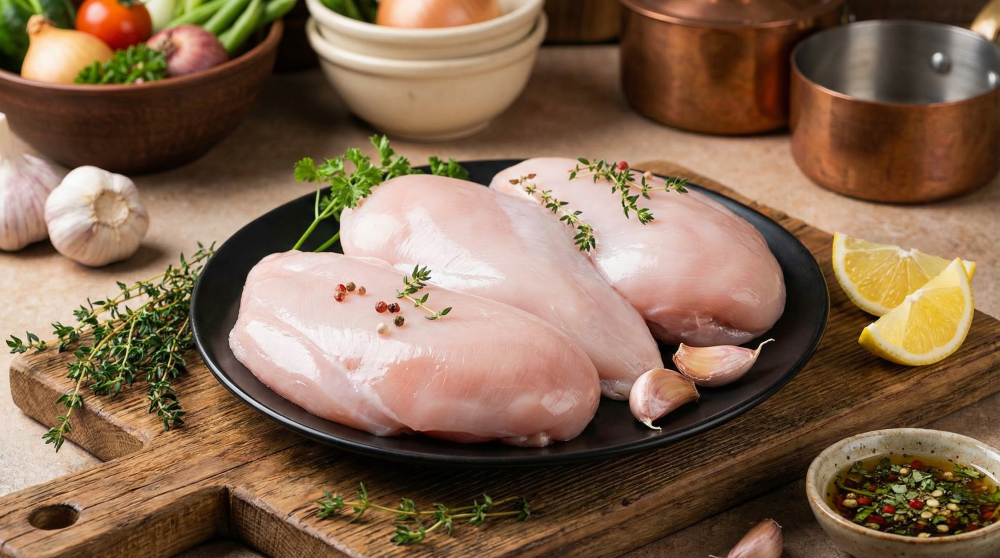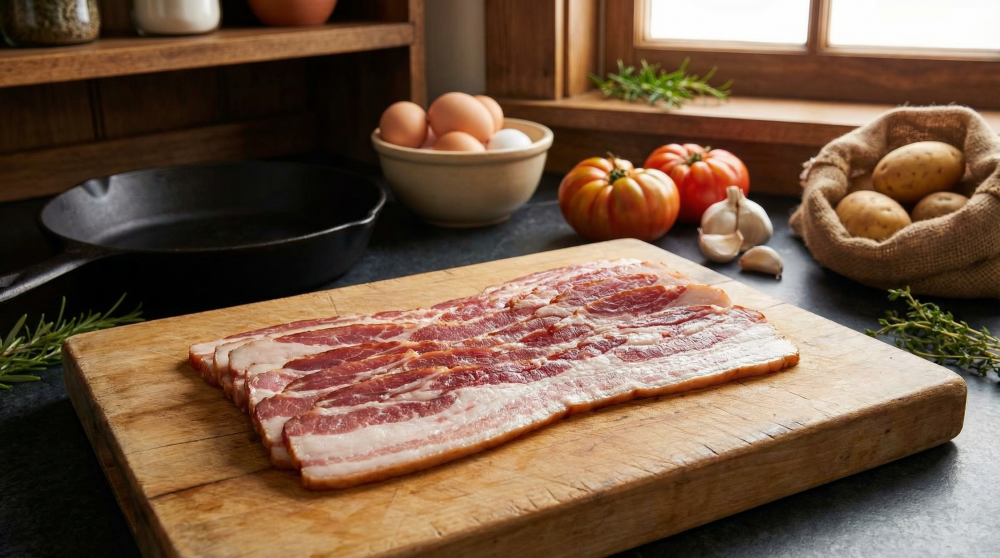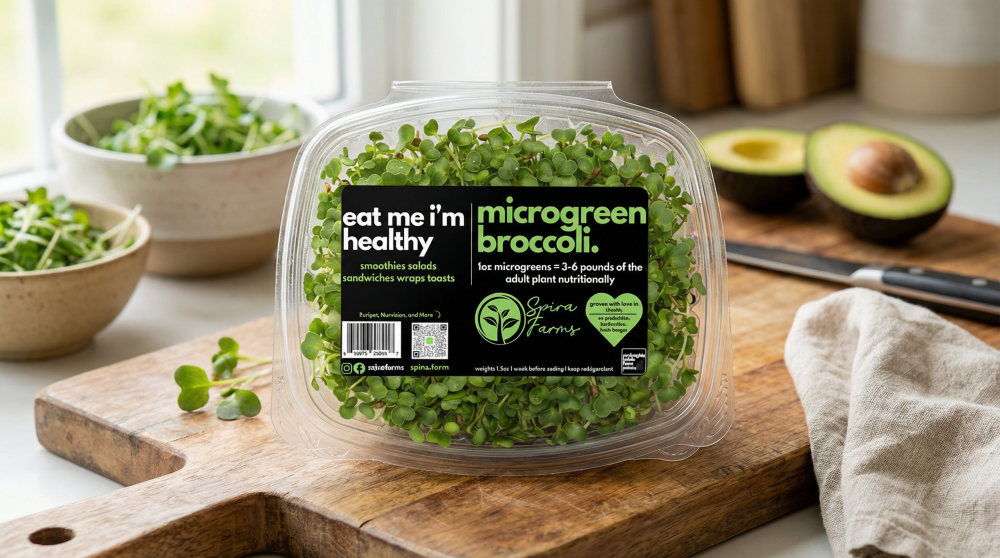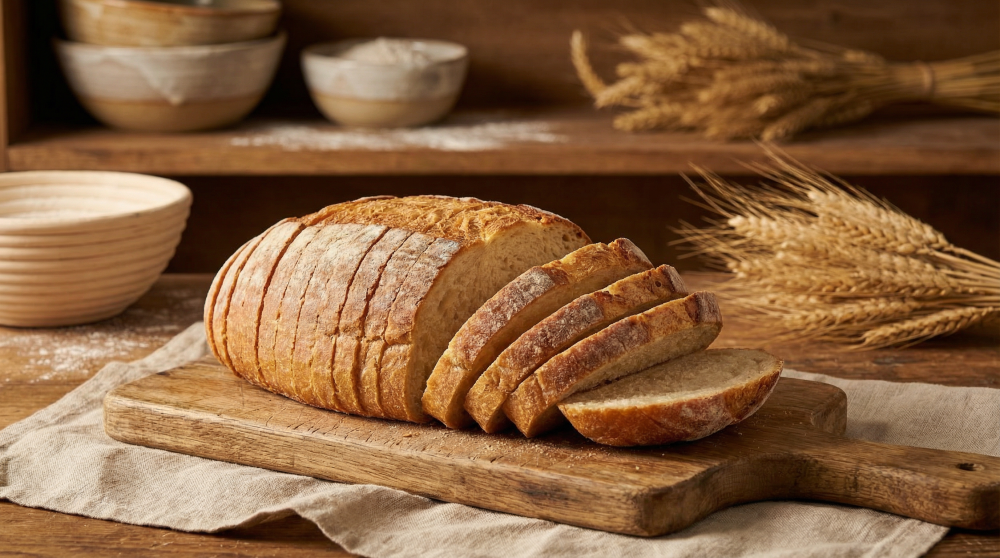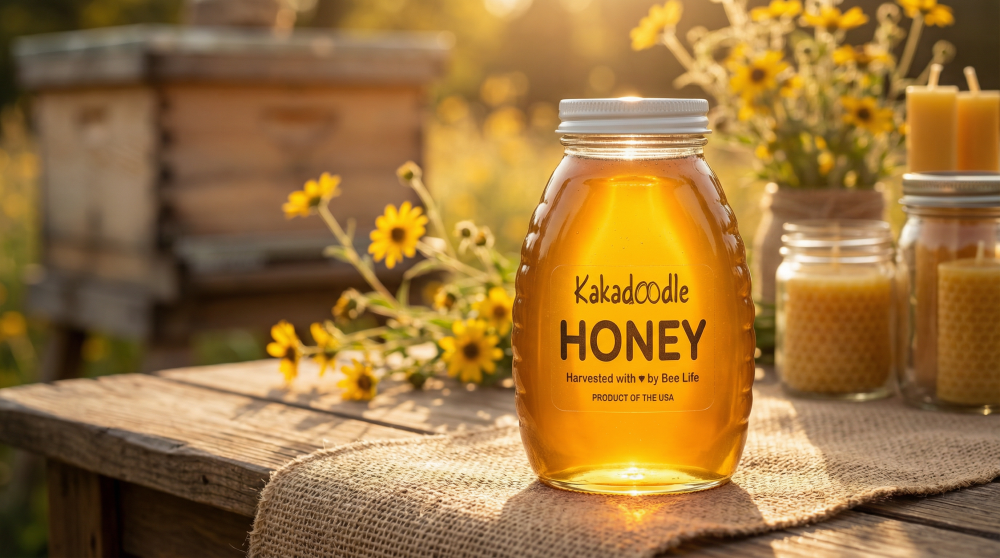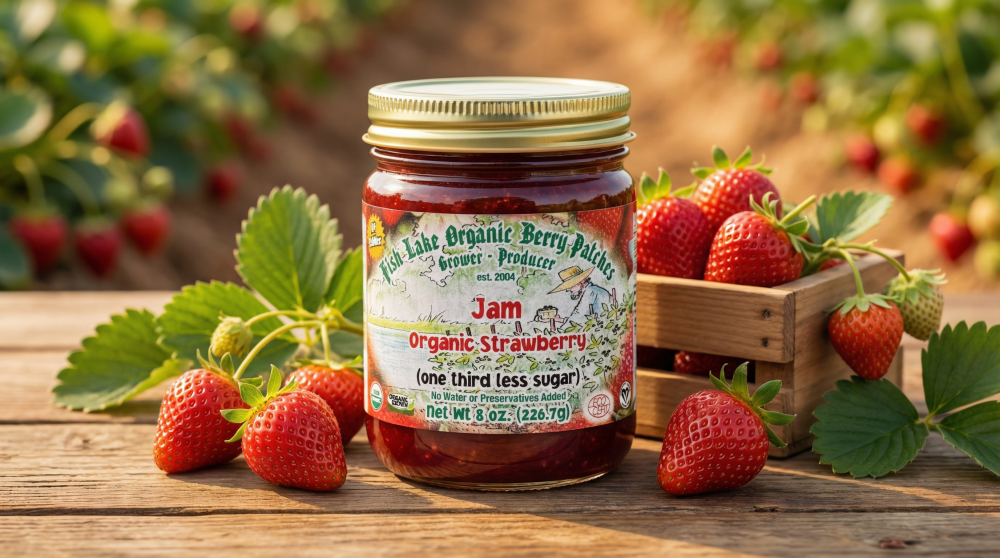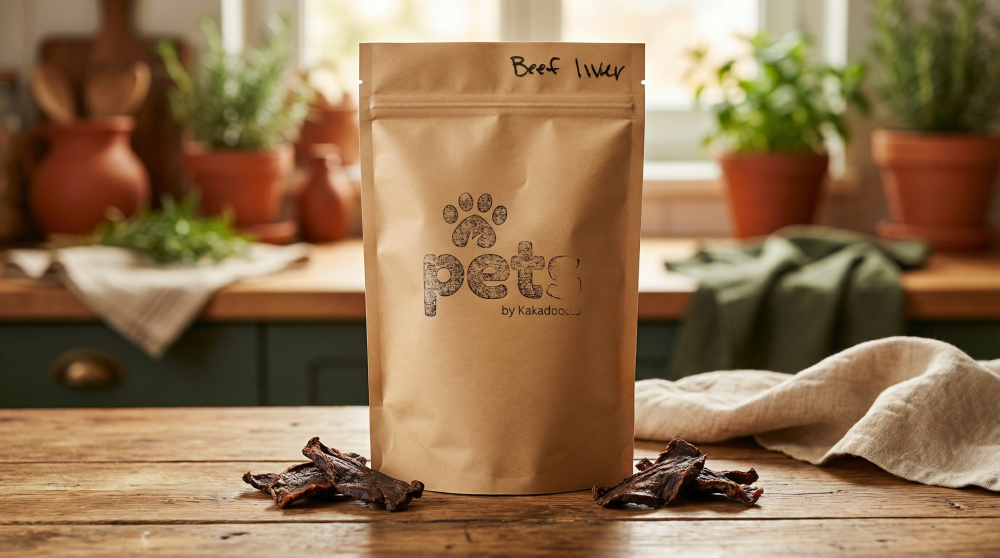article Egg Labels: From Cage-Free to Regenerative
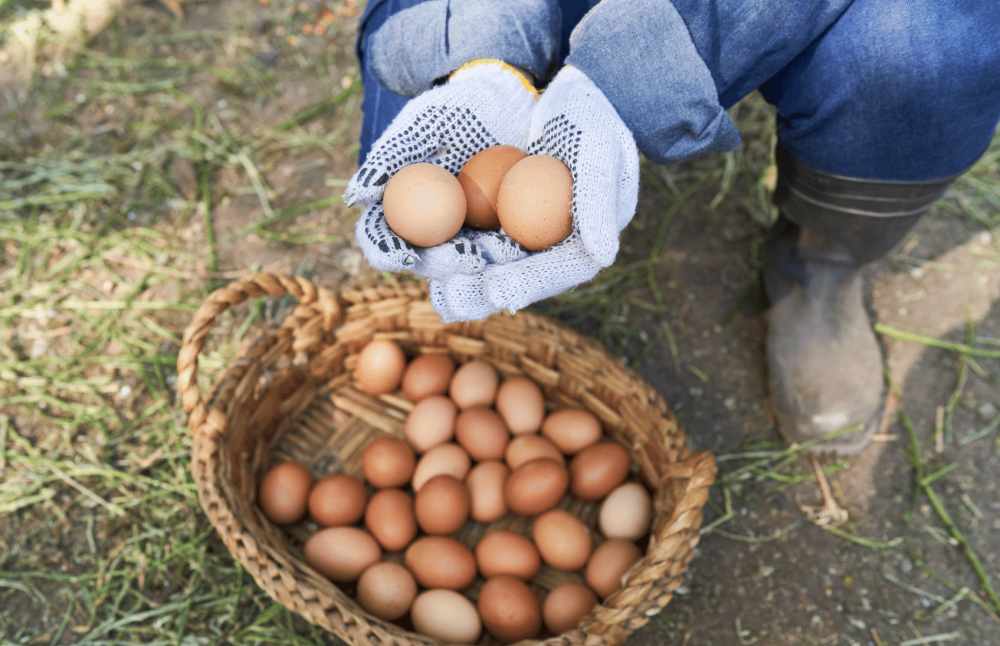
A few years ago, before we moved onto a farm and started this crazy adventure of trying to get chemical-free food to people, I was the guy buying the cheapest eggs I could find.
One morning, I was scrambling eggs for my kids and something hit me: Why are these eggs so cheap? They didn’t look the same. They didn’t taste the same. That moment set us down a path that changed everything—meeting a farmer who explained the differences between types of eggs, going through my battle with cancer, and ultimately deciding to build Kakadoodle.
So let’s cut through the labels you see at the grocery store, talk about what really matters, and share how we do eggs differently on our farm.
Cage-Free Eggs
- What it means: Hens aren’t in cages, but they’re usually in massive barns with thousands of other birds.
- Do they go outside? Nope. Cage-free doesn’t guarantee outdoor access (Wikipedia).
- Why it matters: It’s a step up from cages, but still far from natural.
Free-Range Eggs
- What it means: Cage-free plus “outdoor access.”
- The catch: USDA doesn’t say how big the outdoor area has to be—or how much time hens spend there. Sometimes it’s just a door to a dirt lot (Wikipedia).
- Why it matters: Sounds better than it often is.
Organic Eggs
- What it means: Cage-free, outdoor access, and certified organic feed (no synthetic pesticides, herbicides, fertilizers, or GMOs).
- Why it matters: Organic ensures cleaner feed and fewer chemicals, but it doesn’t always guarantee wide open pastures or low stress for hens (Wikipedia).
- The gap: Organic feed is expensive, so some farms cut corners by sticking to the minimum standards.
Non-GMO Eggs
- What it means: Hens are fed feed that is not genetically modified (no GMO corn or soy).
- Why it matters: For me, this is deeply personal. I’m a cancer survivor. Chemicals like glyphosate—commonly used in GMO crops—are something I believe contributed to my illness. So for us, “non-GMO” isn’t just a label, it’s a line in the sand.
- The bigger picture: Choosing non-GMO feed means chickens are eating grains not doused in Roundup, which means you aren’t either. It’s one more way to keep chemicals out of your family’s food chain.
👉 At Kakadoodle, our feed is both non-GMO and chemical-free. For us, it’s about health, not marketing.
Pasture-Raised Eggs
- What it means: Hens live outdoors on pasture, able to forage, scratch, and act like chickens.
- Regulation: The USDA doesn’t define “pasture-raised.” Some third-party certifications like Certified Humane or Animal Welfare Approved set standards.
- Nutrition: Pasture-raised eggs consistently test higher in omega-3s, vitamin A, vitamin D, and vitamin E (Real Simple).
- Why it matters: This is when eggs start tasting like eggs again—rich, colorful yolks and stronger flavor.
There are two main ways farms raise hens on pasture:
-
Mobile Coops (Daily Moves)
- Portable houses are moved across fresh pasture every day.
- Upside: Hens always have new grass and insects to forage.
- Downside: In climates like ours, mud, snow, and frozen ground make this difficult. Most farms still need to move hens into barns in winter, which can be stressful.
-
Rotational Pasture Around a Permanent Barn
- Hens live in a central barn and rotate through fenced pasture sections.
- Upside: More practical, scalable, and less stressful in harsh climates.
- Downside: Doesn’t look as romantic as chickens following a mobile coop across open fields.
Regenerative Eggs (The New Kid on the Block)
Recently, companies like Vital Farms have started using the label “Regenerative Eggs.”
The way I see it, “regenerative” refers to the daily-move, mobile-coop system—hens spreading fertility across the land and constantly grazing fresh ground. By contrast, I’d describe “pasture-raised” more broadly: hens live outdoors and sleep in a stationary barn but still rotate across pasture.
Both systems can produce great eggs and improve soil health. The difference is how often the land is rested and how practical it is to manage year-round, especially in regions with tough winters.
Just-Laid (Our Farmstand Exclusive)
Here’s something you won’t find at the grocery store. At our farmstand, we sell eggs with our “Just Laid” label—eggs laid within the last 24 hours, unwashed, and unrefrigerated.
Why unwashed? In the U.S., all retail eggs must be washed. Washing removes the egg’s natural “bloom,” a protective coating. Once the bloom is gone, refrigeration is required.
But in the U.K., eggs are sold unwashed and sit right on the counter (Wikipedia). That’s why our “Just Laid” eggs are special—you pick and pack them yourself, and they can stay on your counter until you’re ready to enjoy the freshest eggs you’ve ever had.
Rainbow Eggs 🌈
One of the most fun things about farm eggs is the colors. We call them “rainbow eggs”—a carton filled with deep chocolate browns, pale blues, mossy greens, and speckled tans. Heritage breeds like Ameraucana, Olive Egger, and Marans lay these beauties.
The #1 question we get at the farmers market: Do they taste the same?
Answer: Yes. The shell color is just genetics. Inside, they taste the same and have the same nutrition.
Still, there’s something magical about cracking a blue egg into the pan. Food should delight us, not just feed us.
Why Farm Eggs Are Different
Labels tell only part of the story. Real eggs—the kind with golden yolks and firm whites—come from flocks raised on actual pasture, managed by people who care about the land and animals.
That’s why Kakadoodle exists: not just to sell eggs, but to rebuild trust in food. We’ve lived the difference personally, and now we’re doing our part to make it accessible for families who want better.
✅ Bottom line: I started by buying the cheapest eggs on the shelf. Today, we’re raising eggs that reflect our values: chemical-free, non-GMO, pasture-raised, and truly local. Whether you call them regenerative, rainbow, or just-laid—the best way to know your eggs is to know your farmer.
